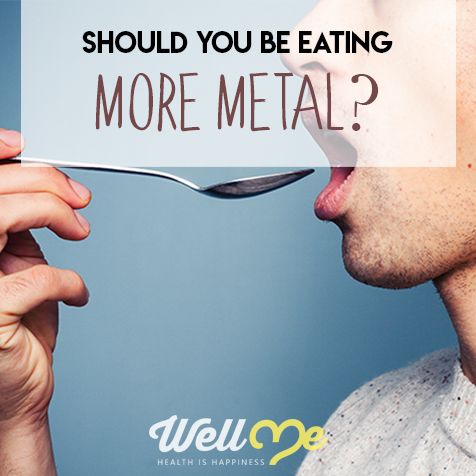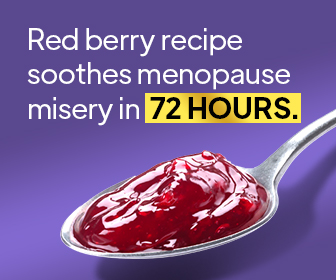When you think diet, you probably think about proteins, vegetables, and vitamins. However, when you consider the nutrients you’re most likely to need more of, it is important not to overlook the trace metals that the body requires to function optimally.
In this article, we’re going to provide you with a full guide of the most important metals for your diet, why they’re important, and the kinds of foods that you should be eating to make sure you have enough. Let’s get started!
What is a Balanced Diet?
A balanced diet is the key to health and wellbeing, but this doesn’t just mean a diet that makes you lose weight and look great. A balanced diet has to be balanced across all the nutrients. While weight loss is one of the most common things we use diet for, it is important to focus on health, performance, and longevity as well. When planning a diet, it is important to consider the foods that are necessary to improve health, metabolism, digestion and a whole host of other health markers that are easily forgotten.
A balanced diet has to consider calories, as well as the macronutrients that make up these calories. Vitamins and minerals are essential for the maintenance of proper health and should be a central concern – this is why you are advised to eat at least 5 portions of fruit and vegetables a day. Vitamins and minerals are ‘micronutrients’ and if you’re not getting enough of them in your diet, you’re not eating a balanced diet – even if you have six-pack abs and can run a mile a minute.
Many of the most important minerals for the diet are trace metals: small amounts of these compounds are necessary for the body to function properly and can only be found in the diet. The body cannot produce its own trace metals from other foods, which is why you should be eating more of them, especially since there is a good chance you’re already deficient in at least one.
Key Metals and Their Roles in the Body
Iron
One of the most common metal deficiencies is iron, which is a concern because it is one of the most important micronutrients, aside from being an essential metal[1]. Iron is essential for energy metabolism in the body and is a key player in blood health, which is why iron deficiency is so often associated with anemia, fatigue, and muscular weakness. This makes iron a key factor in the health and performance of the muscles, as well as ATP synthesis – the process that is used to make the energy necessary for life.
Because iron is so closely related to the function of blood and muscles, it is found primarily in darker red meats such as beef and venison. If you’re on a plant-based diet, focus on getting iron from tubers like turmeric, dark dried beans, or dark leafy greens. Consider supplementing vitamin C, as this boosts the absorption and use of iron in the body[2].
Copper
Copper is also involved in the metabolism and use of iron in the body, making it another key nutrient for optimum health and wellbeing. Alongside combatting iron deficiency, copper is also an important part of mitochondrial health which is important for the synthesis of energy from fat and carbohydrate sources. Deficiency in copper causes a serious risk of low white blood cell count and reduced immune function, as well as increased risk of anemia[3].
Copper is found in many forms of seafood (such as shellfish), as well as legumes, nuts, organ meats (such as liver and kidney), and even whole grains. You are less likely to be deficient in copper than iron, but if you are a woman or of advanced age, the need for copper can increase.
Zinc
Zinc has a variety of uses in the body and is a co-enzyme in over 100 different reactions. Zinc is primarily related to proper growth and development, but also plays a role in male sexual and hormonal health. Zinc deficiency has been estimated to effect over 2 billion people, making it a serious nutritional problem. Deficiency can cause delayed growth in children, testosterone deficiency, and various immune and psychological disorders[4].
Zinc is best consumed in meats – many plant foods contain anti-nutrients that reduce the bioavailability of zinc, whereas red meats like beef, venison, and lamb are superior sources.
Other Essential Metals
Chromium
Not many people talk about chromium as an essential nutrient, but chromium deficiency has been linked to a variety of health problems such as the inability to lose weight[5]. If you’re not deficient, then supplementing chromium won’t do much, but if you don’t have enough in your diet you will see serious problems with weight management. Chromium is also key for energy transfer and a lack of dietary chromium can contribute to serious problems with insulin action – this can lead to poor glucose metabolism and excessive cellular fatigue.
Chromium is generally found in the ruffage of potatoes, spices, breads and cereals, as well as fruits and vegetables. Yeast, molasses, cheeses, and other fortified or fermented foods can also provide a boost of chromium, among other key nutrients.
Magnesium
Magnesium is a universal coenzyme with over 300 uses in the body, making it one of the most useful nutrients in the diet[6]. One of the key benefits of magnesium is increasing your ability to absorb and use the other nutrients found in food – this makes magnesium an important part of a healthy and balanced diet. Finally, magnesium is necessary for the efficient storage of energy as ATP, which will affect nearly every process in the body. Deficiency in magnesium can cause long-term problems with muscle and nervous system health, bone density and remodelling, and serious illnesses such as type-2 diabetes or even heart disease.
The main source of magnesium in your diet should be dark green, leafy vegetables such as spinach, kale, and collard greens.
Manganese
Manganese is the last essential metal on our list, but its health effects are still profound and deficiency is still a real health concern. Manganese is associated with blood health and energy balance, much like iron and copper, but also plays an important role in the creation and metabolism of glucose molecules in the body. Deficiency in manganese wreaks havoc on both these processes, which is significant since they are both key players in the experience and physiology of energy balance. Deficiency in manganese will often result in a profound sense of tiredness, weakness, or poor performance across physical and mental tasks.
Cloves are the premier source of manganese– this spice contains far more manganese than any other food and can be used in moderate doses as a seasoning to boost your intake. Many high-quality carbohydrate sources also contain plentiful manganese, such as oats, brown rice, and various forms of beans.

Essential trace metals might not be the most popular or glamorous part of a diet, but they are crucial to keeping your energy systems and metabolism healthy. If you’re structuring a well-balanced diet, essential metals will make the difference between weight loss and a complete health and body transformation. Add some of these nutrient-dense foods to your diet and we guarantee you’ll feel the benefits in health, energy, and longevity.
References
- [1] Killip, Shersten. “Iron Deficiency Anemia.” University of Kentucky, Lexington. <http://163.178.103.176/Fisiologia/cardiovascular/Objetivo1/Anemia_por_deficienciadehierro.pdf>
- [2] Cook, J.D. “Vitamin C, the Common Cold, and Iron Absorption.” The American Journal of Clinical Nutrition. 1977 Feb; 30(2): 235-41. <http://ajcn.nutrition.org/content/30/2/235.short>
- [3] Milne, DB. “Assessment of Copper Status: Effect of Age and Gender on Reference Ranges in Healthy Adults.” Clinical Chemistry. 1993 May; 39(5). <http://clinchem.aaccjnls.org/content/39/5/883.short>
- [4] Hambidge, Michael. “Human Zinc Deficiency.” The Journal of Nutrition. 2000 May; 130(5): 13445-495. <http://jn.nutrition.org/content/130/5/1344S.short>
- [5] Jeejeebhoy, K.N. “Chromium Deficiency, Glucose Intolerance, and Neuropathy Reversed by Chromium Supplementation in a Patient Receiving Long-Term Total Parenteral Nutrition.” 1977 Apr; 30(4): 531-38. <http://ajcn.nutrition.org/content/30/4/531.short>
- [6] Huskisson, E. “The Role of Vitamins and Minerals in Energy Metabolism and Well-Being.” The Journal of International Medicine Research. 2007; 35: 277-289. <http://www.nanotechnologystore.com/(14)The-role-of-vitamins-and-minerals-in-energy-metabolism-and-well-being.pdf>








